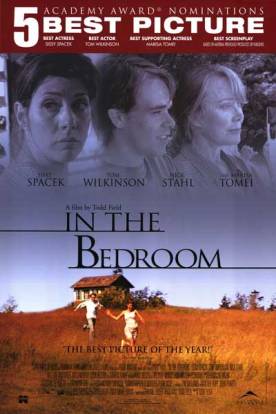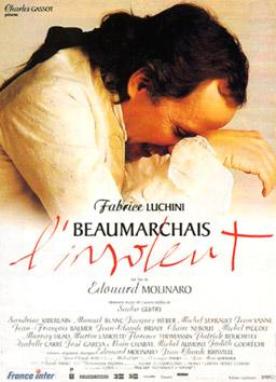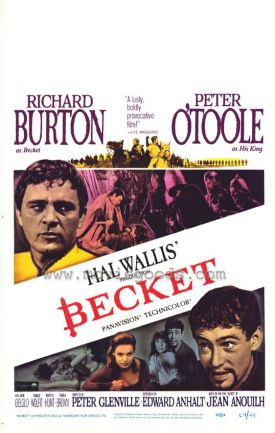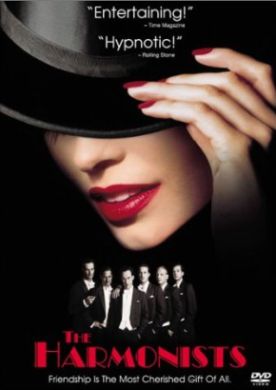In the Bedroom
In the Bedroom, directed by Todd Field, is getting the kind of suspicious rave notices that American Beauty got a couple of years ago, though I hasten to add that it doesn’t deserve that treatment. It’s not nearly so bad a film. But neither is it so good a film as it sometimes promises to be and as the performances of the actors in the two principal roles ought to have made it. This is because it tries to do two separate and, as it turns out, irreconcilable things. On the one hand it is an Oprah-like wallow in “recovery” after tragedy strikes a doctor’s family in small-town, coastal Maine. In this sense it is a psychological study and calls mainly on the considerable acting skills of Tom Wilkinson, as Doctor Matt Fowler, and Sissy Spacek as his wife, Ruth. When their 21 year-old son, Frank (Nick Stahl), is killed by the thuggish husband of the older woman he is dating, their lives and their relationship are turned inside out.
At the same time, the picture offers us a tale of revenge. The only thing the doctor and his wife have any longer to unite them is their hatred for their son’s murderer, Richard Strout (William Mapother), the scion of a well-to-do family who can afford the legal representation to have the charge against him reduced to manslaughter. We can well believe that a wild and primitive lust for revenge exists just beneath the surface of these two highly civilized people, but — for me, anyway — it just doesn’t go with the movie’s psychic probings of the doctor and his wife. All the little threadbare spots, worn smooth by the normal frictions of married life, suddenly become gaping holes, and what had been a happy family dissolves in bitterness and recrimination. This seems to me to be quite enough for us to be getting on with. The plunge into the psychic depths has ill-prepared us for the sharp turn outwards of the movie’s final scenes.
The two themes might have gone together but, as it happens, they don’t. To some extent, the movie is the victim of its own success, as the mesmerizing performances of Mr Wilkinson and Miss Spacek, particularly in the scene when their pent-up anger and frustration finally bubbles to the surface, make the shift to the revenge plot too much of an adjustment. But another problem is lackadaisical direction. The first seven-eighths of the film are so slowly paced that we are almost two hours into it before the revenge motif is even unveiled. By this time it is too late. The sudden change in the picture of the easy-going doctor that we have been long forming in our minds is too jarring and unconvincing.
This is Mr Field’s first film, and it is probable that inexperience and the chance to indulge himself for 130 minutes have combined to produce these shortcomings. Every shot goes on just a little too long, as if he were cultivating a mannerism, and the excess footage soon adds up. Moreover, we have what is perhaps a deliberately induced sense of dislocation from the plot by the long and leisurely unwound portrait of small town life. In retrospect, there are too many unnecessary details that turn out not to have been worth the screen time spent on them. The late André Dubus, to whom the film is dedicated and on whose story, “Killings,” it is based, was always a little too much the tale-spinner whose rambling and incoherent shaggy-dog stories are much less forgivable on film than they are on the page, or read aloud.
There are also rather a lot of things that don’t get the play they deserve. Marisa Tomei in the role of the older woman, Natalie, is not an actress to whom I have ever been particularly partial, but her workmanlike and entirely creditable performance in the film’s first third is allowed just to fade away thereafter. She has three more brief scenes and is then forgotten. How much better it would have been to get something more out of her, and out of her two sons, whose relationship to the Fowlers is also just dropped, than to have spent the time on the doctor’s lobster fishing or his poker game or his meals with a sympathetic friend, Willis (William Wise) or the Missus’s chats with Willis’s missus, Katie (Celia Weston) or the drawbridge that has to be cranked by hand more than once. We get the point about all these things much more quickly than Field seems to think we do.
Nevertheless, the movie is worth seeing if only for the acting in the two principal roles. And, unlike American Beauty, it offers us a portrait of small-town America that is both believable and sympathetic
Discover more from James Bowman
Subscribe to get the latest posts to your email.







